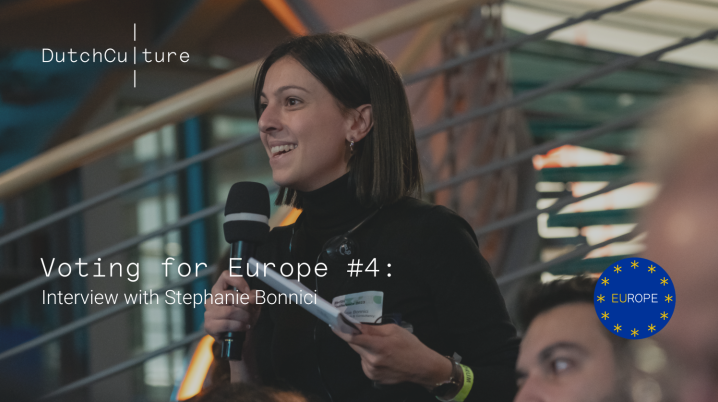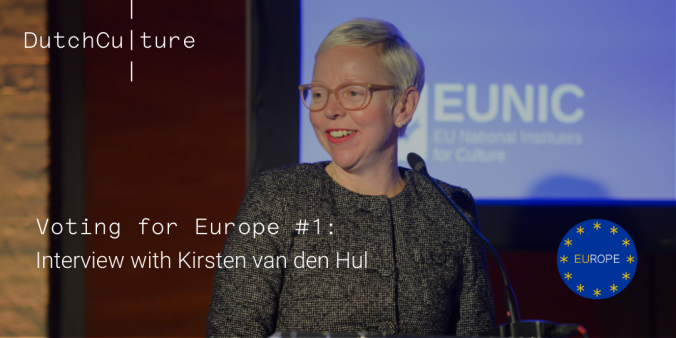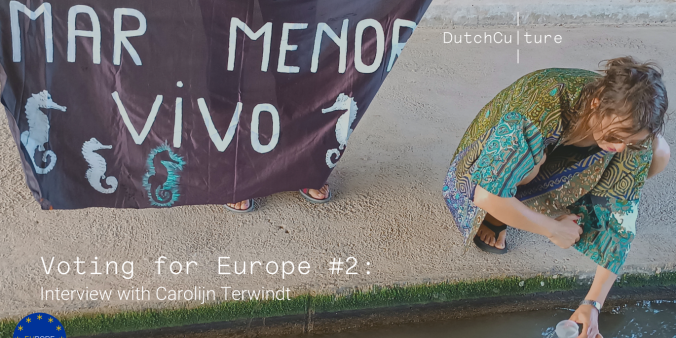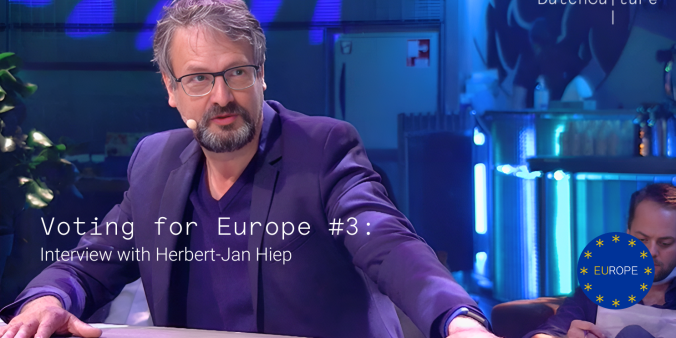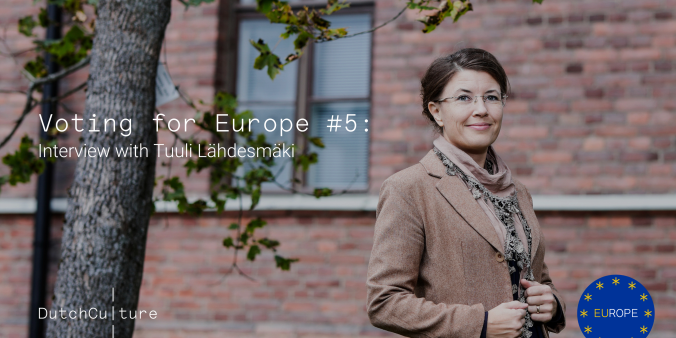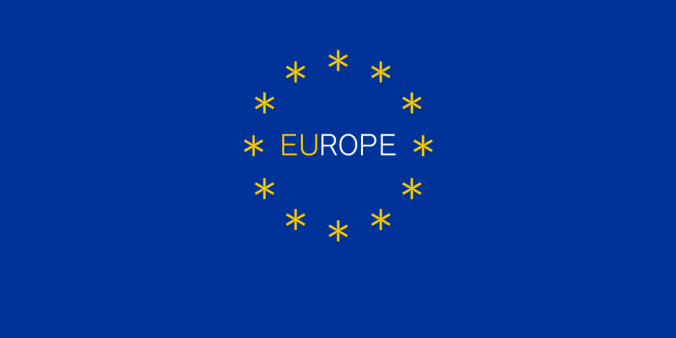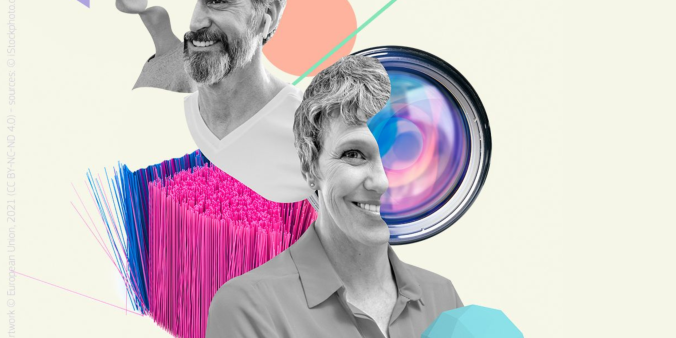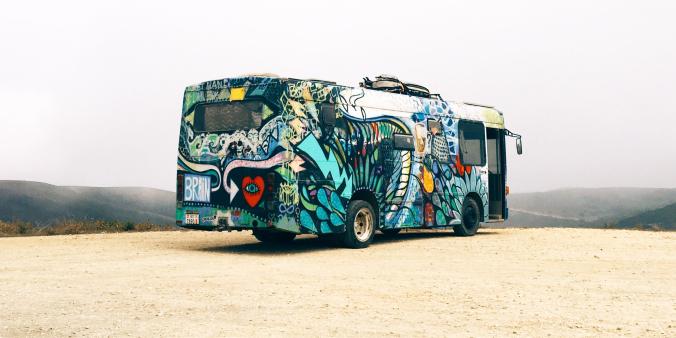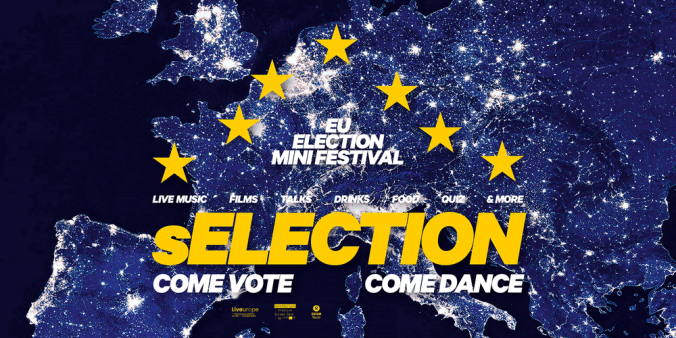
During the upcoming European Parliament Elections from 6 to 9 June this year, citizens from 27 EU countries will have the opportunity to cast their votes. It is a crucial moment for the future of Europe and our planet, and will also shape European cultural policies in the years to come. Fundamental values such as democracy, human rights and freedom of speech are at stake.
This has prompted us to reflect on the role of culture in fostering a united Europe. In this interview series, we are eager to learn from artists and a wide range of cultural professionals about what Europe and the EU mean to them personally and for their practice. Additionally, we explore how cultural exchange can contribute to a stronger shared European social and cultural space.
Stephanie Bonnici, Arts and Cultural Manager and Public Policy Intern (Cultural Deal for Europe) at European Cultural Foundation
In this interview, we talk with Stephanie Bonnici, who is actively engaged in the cultural and creative sectors, working at the intersection of dialogue, policy, the arts & communities. Ahead of the European Elections, she founded STORIES FOR HOPE in her role as Changemaker for Culture Action Europe’s Pop the Vote! initiative. She is also a Public Policy Intern at the European Cultural Foundation, focusing on the Cultural Deal for Europe campaign.
Do you perceive yourself as European? Why?
“Growing up on the Maltese Archipelago in the Mediterranean, Europe felt distant, which might be expected for an islander. As a child, I identified primarily as Maltese, and at most Mediterranean, due to the community-focused and deep-rooted cultural traditions of the seaside village that I grew up in.
I was 8 years old when Malta joined the European Union in 2004, and at that time, I saw being European as merely being a citizen of an EU state—a view likely shaped by national debates that were marked by a postcolonial mindset. My perspective shifted again through my work in the cultural and creative sectors, especially with EU-funded projects, where I began to see an alignment between my values of unity, freedom of expression, diversity, and solidarity, and those that Europe is built upon.
My understanding of being European has continued to evolve since I exercised my right to freedom of movement and relocated to the Netherlands last year. Moving from an island to the continent revealed privileges like easy cross-border train travel. But also the complexities of embracing shared responsibility amid diverse contexts—reflected through centuries-old privileges and inequalities, contemporary realities, generational traumas, and histories—and of practising those European values in a world facing major ideological shifts. So, my perception of being European is continually evolving, shaped by the myriad of complexities that Europe is no stranger to.”
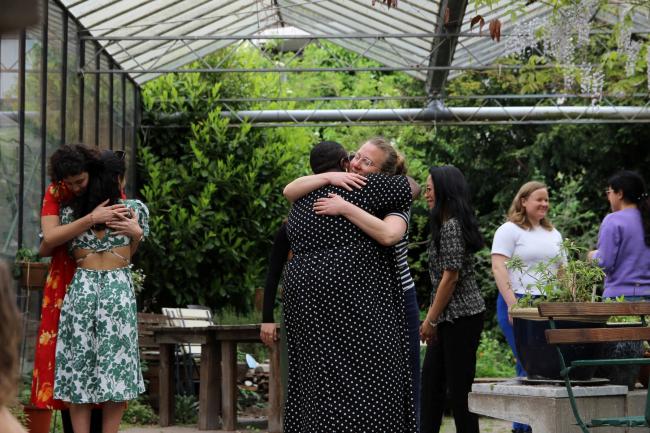
You are engaged in in the cultural and creative sectors, what initiatives are you involved in and what brought you to this role?
“STORIES FOR HOPE is a collaborative initiative that I am currently piloting in Rotterdam, where I am based. It invites local artists and creatives to explore themes of hope and democracy through their artistic and creative practices, sharing these processes with local communities made up of like- and unlike-minded individuals.
I was inspired to offer this space when Culture Action Europe invited me to join its Pop the Vote! Culture on the Ballot project, co-funded by the European Parliament. It’s aimed at encouraging voting in low-turnout countries through arts and culture. I was interested in why people were not voting, and through many conversations, as well as my own lived experience, I recognised that people often feel hopeless about the future. Europe was built on the values of solidarity, unity, peace, and dialogue, but when many think of Europe today, bureaucracy and institutions dominate citizens’ thoughts. With the resurgence of war and declining democracy, it’s easy for voters to feel disheartened, and for them to question whether their vote will really matter.
But while voter turnout may have been low, as a newcomer to Rotterdam, I was also encountering a strong sense of grassroot engagement in the cities’ diverse communities; very often spearheaded by or with artists. They reminded me that while some stories in our world seem dictated by those in power, many more are crafted by ordinary citizens and communities who stand up to bring about change and who refuse to lose hope.
Through STORIES FOR HOPE, I felt that in order to recognise the importance of voting, it was crucial first to acknowledge what it is that we hope for. By encouraging dialogue and creative expression, the initiative wants to reconnect people with the core European values of solidarity, unity, and diversity, and to empower us to imagine, demand and shape alternative futures for our lives, for Europe, and for our world.”
Can you share a specific example or experience that illustrates the impact of European cultural cooperation on your work?
“In my work, I frequently engage with arts festivals in various roles. I was initially drawn to this field due to its ability to bring communities together. My continued interest stems from the opportunities it provides for engaging critically with contemporary societal challenges through cross-cultural dialogue.
One example is the European Festivals Fund for Emerging Artists (EFFEA) – an initiative of the European Festivals Association, co-funded by the European Union. The initiative not only facilitates cross-border collaboration among festivals, it also supports emerging artists' experimentation and offers audiences fresh and thought-provoking artistic experiences in their towns and cities.”
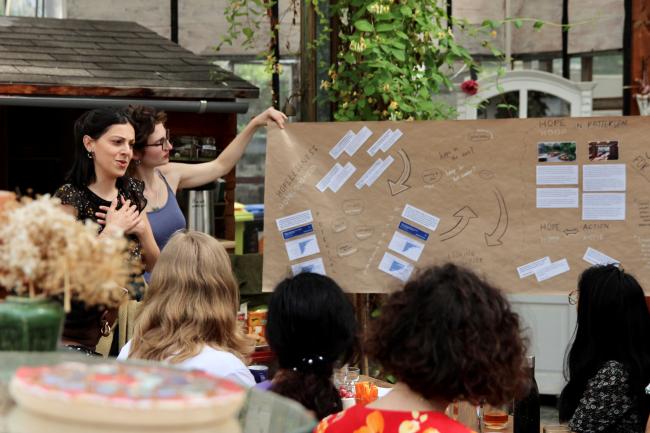
In this context of cultural collaboration, how important will the coming European election be in your opinion? What is at stake?
“The foundational values of Europe—unity, freedom of expression, diversity, peace, and solidarity—are under threat, both from those who question their relevance and from those who fail to actively protect them. The vote we cast this June will be pivotal and one we will likely reflect on for years. The belief in the strength that cross-border cultural collaboration brings to our communities is likely to be challenged. As a young professional working in arts and culture, I see the future of young people striving to build careers in the arts as being at risk, especially for those who are already struggling to sustain their essential work within communities.”
What challenges and opportunities do you see for cultural collaboration across European borders, and how do you think they can be tackled?
“I feel there is a need to not only acknowledge—but also better understand—the diversity of ways in which different communities experience Europe. Small islands like Malta may have fewer physical and financial resources to offer, but they can contribute greatly with valuable perspectives that highlight the diversity of realities across Europe. Creating equitable spaces of dialogue, where all voices are heard, is essential and must be supported by a commitment to mutual respect.
I believe in the good that can come out of listening to one another. This is equally a challenge and an opportunity, and must be approached with sensitivity and responsibility if we are to develop meaningful cultural collaboration.”
Do you have a message for the European people, for policymakers, MEPs, or other decision-makers about the importance of supporting and prioritising European cultural collaboration?
“To be actively conscious of the peripheries. To engage proactively with those less likely to reach you and practise active listening. Policymakers should ensure equitable access to all forms of support, support cross-border cultural initiatives, and empower platforms that allow diverse voices to meet and exchange.”
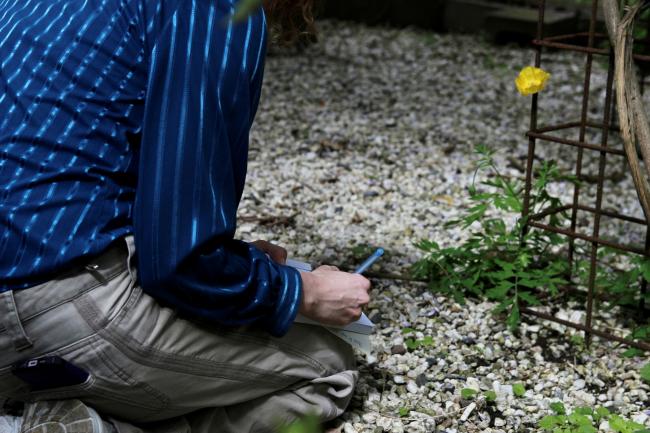
at Stadskwekerij De Kas in Rotterdam May 2024.
What are your next steps in terms of European cultural collaboration ahead of the elections?
“Ahead of the elections, I am supporting the team at the European Cultural Foundation in Amsterdam to advocate for a Cultural Deal for Europe. I am particularly passionate about the call for common and ambitious standards for the working conditions of artists and cultural workers across Europe, given their crucial role in exemplifying the impact of cultural collaboration. It is vital that this message reaches those aspiring to represent us, so we can understand their commitment to supporting these standards and the call’s other crucial demands.”
What is a European cultural project or place that you think people must know about?
“Among my many favourites is the island of Gozo, which is part of the Maltese Archipelago. At just 67 km², it is home to – amongst many natural gems - the Ġgantija Temples, a UNESCO World Heritage Site. It’s one of the oldest free-standing structures in the world: a reminder of the ingenuity and perseverance of early societies.”
Europe & DutchCulture
DutchCulture is connected to Europe in a number of ways. We work closely with the Dutch embassies in 24 focal countries worldwide, including nine in Europe. We establish collaborations with these countries in the field of culture and cultural heritage. With our Europe + Heritage programme, Dutch heritage professionals are stimulated and enabled to set up European heritage knowledge exchanges. We offer advice on the Creative Europe programmes and seek to shape the future of cultural relations through the EUNIC network.
